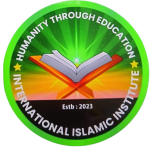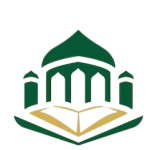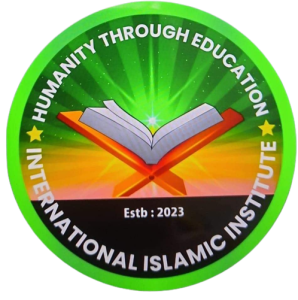Our perspective of understanding education is based upon Islamic faith. To delve into this discussion, analysis of three examples of education recorded in Quran and Hadiths is required.
The first of these three examples occurred when Adam (AS) was educated by Allah (SWT) in the heaven. The second example occurred when Jibreel (AS) educated Prophet (SA). And the third occurred when Prophet (SA) educated his companions. Before going into this analysis, it is important to repeat the purpose of education. The purpose of education is to transmit/acquire knowledge or ‘ilm’. Ever since human being was created, knowledge or ‘ilm’ became his sign of supremacy over many other creations of Allah (SWT). As such, education has been an inseparable part of human history, and has been recognized and discussed with highest importance and in adequate length in Quran and Hadith. The first example of education of the human being has been recorded in Al-Quran (Sura Baqara Verses 31-34). This occurred as soon as the first human being was created. When Allah (SWT) created Adam (SA), he (Adam) did not possess knowledge. So Adam (SA) was taught by Allah (SWT) all the names, meaning the knowledge or ilm. When education of Adam (AS) was completed, he was presented in front of the angels. When asked about the names of different things, the angels failed but Adam (AS) succeeded by the virtue of his acquired knowledge. Only then Allah (SWT) ordered the angels to prostrate Adam (AS). By then Allah (SWT) has already proven to the angles that the supremacy of Adam (AS) was based upon the acquired knowledge. In this entire episode, therefore, a concept of education can be observed. The first aspect of the concept is the purpose of education, which was to impart knowledge to the student- Adam (AS). Second aspect is that the process of education needs a teacher in possession of knowledge. Here it was Allah (SWT) himself. Third aspect is the ‘ilm’ or knowledge that is to be taught to the student. Here it was ‘the names’ of various things of Allah’s creation. In present day’s education system this is called the curriculum. Fourth aspect is that the education process needs student- the seeker of knowledge. Here he was Adam (AS). Adam (AS) possessed appropriate qualities of a student, for he grasped what was taught to him and was able to use the knowledge when tested in front of the angels.
Now, we look at the second example. Prophet (SA) was known as ‘ummi’, one who was not educated by the traditional education system; one who was not educated by any human being. Yet, he (SA) was the most knowledgeable human being. Who then educated him (SA)? How was he (SA) educated? What was the concept of that education? Prophet (SA) was educated by Allah Subhanu wa Ta’ala through His most honorable angel Jibreel (AS). In Quran, Allah (SWT) narrates, ‘Taught him the one intense in strength, one with soundness’ (Sura Nazm, 5-6). The ‘one’ referred to in this verse was Jibreel (AS). From the time of receiving the Prophethood until departing from this world, Prophet (SA) was regularly educated by Jibreel (AS). Jibreel (AS) revealed (the knowledge of) Quran upon the Prophet (AS) and also practically taught Prophet (SA) subjects such as how to offer salah. This education was characteristically repetition of the first example of education to Adam (AS). There was a teacher of supreme qualities; he was Jibreel (AS). There was a curriculum; it was Quran. And there was a student of the highest virtue; Prophet (SA).
The third example of education occurred when Prophet (SA) taught his companions. Duration of this education program was long twenty two years and every details of it has been recorded in numerous hadiths. This education program typically had all the aspects we discovered in the first and second examples of education. In addition, there were new aspect of education such as the value of education environment. Because Prophet (SA) inspired the companions to learn Quran in the mosque. He (SA) did not just inspire, but also regularly conducted education program for the companions in the Prophet’s Mosque. Learning in the Prophet’s mosque was so much loved by the companions that a group of companions called ‘Ashabu Suffa’ lived beside the mosque. Their sole motive was to learn from Quran and the Hadiths. The education program of Prophet (SA) was so remarkable that it produced a new nation called the Muslims. The Arabs, once called uncivilized and backward, turned into a nation of wisdom, character and competence. Within a decade after the death of Prophet (SA), this nation championed as the ruler of the world replacing the powerful Byzantine and Persian Empire; they became role model to all other nations. What were the important aspects of the education program that the companions of the Prophet (SA) went through? In this education program:
- There was a teacher; he was Prophet (SA)- the best among the mankind. Allah Himself certified the Prophet (SA) by saying, “you hold an exalted standard of character” (Sura Qalam, 4). Quran and Hadith explain in details about the Prophet (SA)’s art of imparting knowledge.
- There was a curriculum of highest quality; it was the ‘Ilmush Shariah’ derived from Quran and Hadiths. This curriculum had its foundation upon ‘tauhid’ and risalat’, and was also elaborate in fine proportion about the all that were necessary to make a person succeed in this life and in the Hereafter.
- There were thousands of students- the companions, who’s parallel can’t be found in the history of mankind. They were the finest example of knowledge seekers. Numerous Hadiths explain what should be the manner and etiquettes of student.
- There emerged a new centre of education program; the mosque of the Prophet (SA). With all its sacredness, the new centre became the seat of enlightenment through education program. This indicates what should be the characteristics of an ideal education centre and what the norms to be followed there.
And there were many unique characteristics of this education, which took this education program to a new height. Four important characteristics will be mentioned here.
- First, the companions were first taught the core subjects such as ‘tawhid’ and ‘risalat’ so that they believe in Allah’s oneness and learn to possess fear for Him, and aquire knowledge about who they were worshipping. This was the foundation of education as was instructed in Quran, ‘learn that there is no Ilah but Allah’.
- Second, upon this foundation, the companions then exercised the style of deep thinking or tadabbur (Sura Muhammad, 24), for without ‘deep thinking’ it is not possible to reach the depth of the words of the Book of Allah. The constant exercise of deep thinking had tremendous impact on the companions; soon they became the wisest generation of the Muslim Ummah.
- Third, the education had both formal and informal style of education. Formal lectures were regularly conducted in the Prophet’s mosque alongside the informal education that continued any time of the day.
- Fourth, the education was entirely focused upon application. When asked about how their learning process went on, the Sahabas replied that they used to take few verses of Quran, memorize those, did deep thinking upon those verses, discussed with other Sahabas about their understanding of the verses and then they applied it on regular basis in their day to day life. This is a fine example of application based education.
All three examples mentioned above present to us a model of education program. While we take lessons from all these examples, our attention specially turns to the third example of the Prophet (SA)’s education program to the companions. This education program is the most appropriate model of education program, for it made a backward nation the champion in the world while keeping them constantly and intensely focused on the ultimate objective of obtaining jannah in the Hereafter. This education program produced resulted in producing stream of highly knowledgeable Mufassir, Faqih and Aalims.
It must also be mentioned here that the education program of Prophet (SA) does not prohibit imparting those essential knowledge and skill by which the educated generation can build a society where worldly affairs are done for the security and benefit of the people.
Therefore, the curriculum of International Islamic Institute should be an appropriate mix of ‘ilmush shariah’ and the ‘essential knowledge of the worldly affairs’. The ‘essential knowledge of the worldly affairs’ will enable the students to develop their career in various professional branches such as doctor, engineer, teacher, pharmacist, businessman etc. This mix will be achieved through a fine balance; by keeping constant focus on ‘ilmush shariah’ as to be the foundation of the curriculum and ‘essential knowledge of the worldly affairs’ to develop upon the foundation.




